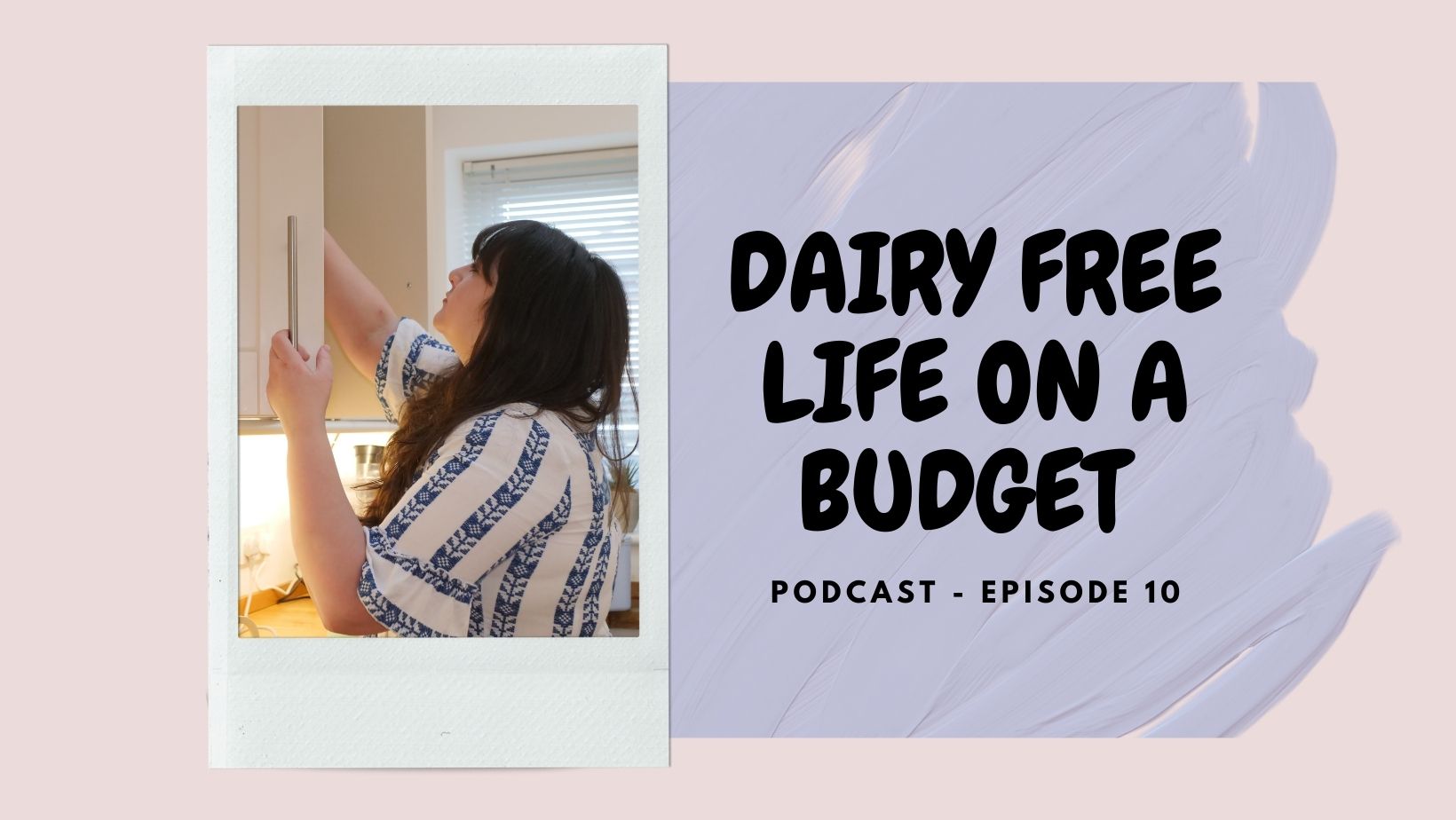Intro
On the DFD podcast, we’ve spoke a lot about choice and variety. We’ve mentioned the large amount of dairy free options for the new dairy free dieter. But we’ve only briefly mentioned price. Price is probably the second barrier after choice. When you’ve found a good alternative you have to ask, what’s the price? Is it too expensive? I think the general answer is; it’ll be more expensive than the dairy counterpart. Which doesn’t bode too well for our wallets.
So keeping all that in mind, this weeks podcast aims to cut down that expense with some helpful money saving tips!
As always, please check and double check ingredients in accordance to your allergies, intolerances and ethics. Ingredients and may contain warnings can also change over time.
Subscribe to the Dairy Free Daisy podcast on Spotify or Apple for weekly uploads.
Stop shopping in the free-from isle
The free-from isle at any supermarket is a great place to find new specialty diet foods. However they usually come at a premium. With a bit of extra leg work you’ll be able to find dairy free foods that don’t have the “free-from” premium attached.
Start by looking at foods you’re already eating. Do they have dairy in? You’ll find that a lot of what you’re eating doesn’t have dairy in. Of course, there will also be a lot that does contain dairy. However, keep it simple and make a list of everything you eat that is already or naturally free from dairy.
Take inspiration from the free-from isle and try to find alternatives in other parts of the shop. However, you must keep your own allergy in mind. If you can’t tolerate ‘may contain’ products then don’t take the risk.
Meal Plan
Meal planning is a great money saving tip on any diet. But when you change to a dairy free diet, it can serve a second purpose. Meal planning will allow you to highlight the meals you already eat that are dairy free.
By meal planning at the start of the week you’ll also cut down on impulse purchases like takeaways or pre-made sandwiches. You’ll also be more aware of your meal costs which can then be altered and reduced if necessary.
Know your shops
Knowing your local shops gives three benefits.
Number one, not all dairy free products are sold at all supermarkets. This means you might not be able to find your favourite milk at every supermarket.
Number two, if you can find the milk you like at the supermarket you go to; it may not be the cheapest. Dairy free products can be expensive and usually there’s at least one supermarket with an offer on the product you want.
Finally, number three, dairy free items may be out of stock. That means you might not be able to get your favourite milk from your go-to shop. You may have to go to another shop, or get a different milk.
It’s important to shop around.
Some foods are already dairy free
Fruit, veg, tuna, eggs and meat (to name a few) are naturally free from dairy and may already form part of your diet. Keep this in mind when you go dairy free because the thought of not having any of your favourite foods may be overwhelming. Most foods you eat will not have much or any dairy in. This means you’ll be able to keep eating the same things. Plus there will be meals where dairy isn’t the focus and can be substituted or removed.
Homemade means personalised
Homemade can sound scary for people who aren’t natural chefs, but you don’t need to run before you can walk. We’ve mentioned some meals may not focus on dairy, and instead, just have a little bit. Start with those. Changing the parmesan on spaghetti to a dairy free alternative is a really simple step. Switching out Greek yogurt to an oat based alternative is just as delicious and easy. You can venture on from there.
On offer? Buy in bulk
Offers are good news. If something is on offer, and it isn’t perishable, buy a second one. Capitalising on offers can mean products cost less than half price. Which is a good thing! However be wary of eating the second one just because it’s in the house – I’m looking at you ice cream. But with a little storage, and a lot of self control, buying in bulk can save you real money.
Shop around for deals
We mentioned earlier about knowing your supermarkets. This is similar. Knowing your supermarkets will help you shop around for the best deals. Don’t limit your shopping to supermarkets. You can always have a look online, on Amazon, local independent shops and the supermarket websites. Sometimes you’ll find things cheaper on Amazon, and sometimes in Tesco. It depends. But looking in more shops, will generally give you more deals.
Sign up to mailing lists (and socials)
Joining a company mailing list for your favourite products can be super helpful. A lot of companies will let you know when offers are on at certain supermarkets, and may send you discount codes from time to time. Obviously be aware that being on a mailing list may not be all discounts and offers. Sometimes you’ll be updated on new products and other things. Remember though when companies announce new products, there might be introductory pricing.
Similarly following companies on social media can have similar benefits. Occasionally companies post about the special offers shops are having for their products.
Picking up a supermarket magazine
Picking up a supermarket magazine, is the offline equivalent of joining a mailing list. You can get magazines at most supermarkets, and they usually have coupons for certain products each month. By picking up the magazine when new products launch; you’ll have more luck snagging coupons for products you want. But getting coupons is never a bad thing.
Look out for “yellow sticker” discounts
Supermarkets often seriously reduce products if they have to be used on that day. In my local Morrisons they mark a huge variety of things at around 6:30-7:00pm and they’re proper discounts. Again this is because the use by date is usually that day but it can be a great way to try new things and don’t forget a lot of products can go in the freezer too.
Summary
Some of these tips I implement personally but some I don’t. We mentioned in the podcast that a downside to a lot of these tips is the time and extra effort it takes to search supermarkets or cook for yourself, that’s a reality. But all of these tips can save you money and that’s the ultimate goal.
Let us know how you get on with the tips on social media. And if you haven’t heard the podcast you can find it here.

